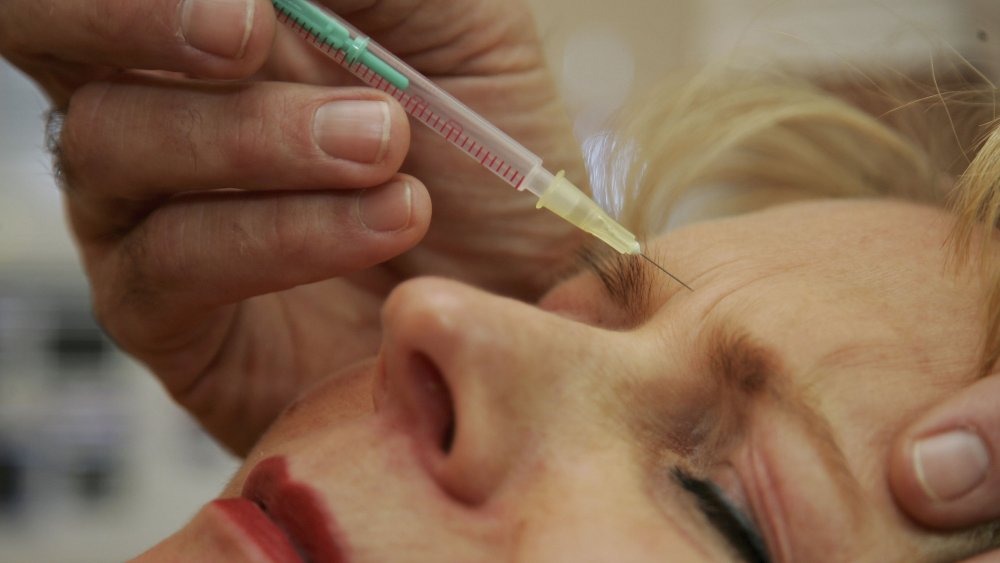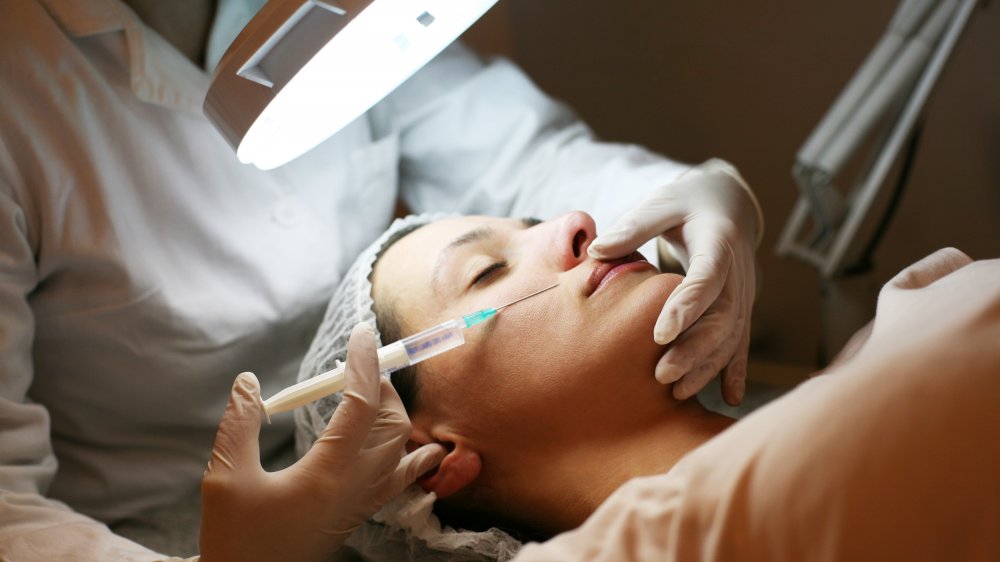Is Botox Actually A Poison?
You may or may not have heard of a bacteria called clostridium botulinum, but you likely know what it can do. Its toxins can cause a serious illness called botulism, and have been blamed for a host of problems from food poisoning that can cause paralysis (via Time), to life-threatening wound infections that can cause difficulties with swallowing or speaking, as well as facial weakness (via Mayo Clinic).
Opthalmologist Alan B. Scott first discovered botulism didn't have to be poisonous in the 1970s, when he used it to treat patients with a condition called strabismus, which made them cross-eyed. In 2012, Scott said: "Some of these patients that would come would kind of joke and say, 'Oh, Doctor, I've come to get the lines out.' And I would laugh, but I really wasn't tuned in to the practical, and valuable, aspect of that" (via Time). Two years later, Allergan bought the drug Scott had named Oculinium, changed its name to Botox, and the rest is history.
Botox has many non-cosmetic uses in medicine
When injected in small doses, the botulism toxin we call Botox is a cosmetic surgeon's dream, because it can interfere with the signals between nerves and muscles, allowing the latter to relax. Botox is also used as a non-cosmetic treatment for eye disorders, migraines, bladder spasms, and excessive sweating (via UPMC). And despite its highly toxic nature, Botox doesn't seem to be much of a problem when it is injected compared to when its derivatives are found in food. Healthline says only 36 cases of adverse effects were reported to the US FDA between 1989 and 2003.
No matter how safe Botox might be, a user can still experience side effects after a shot, including pain and bruising around the injection area, headaches, fever, and chills. Your body may not react well to the injection either, so you might experience drooping eyelids, drooling, and asymmetry. Also, while earlier studies show no adverse effects after 10 injections, Healthline says studies are showing side effects could kick with more extended use. It's important to remember that, like many medical substances, Botox can still technically function as a poison if used incorrectly; as a result, it should be used with caution.

